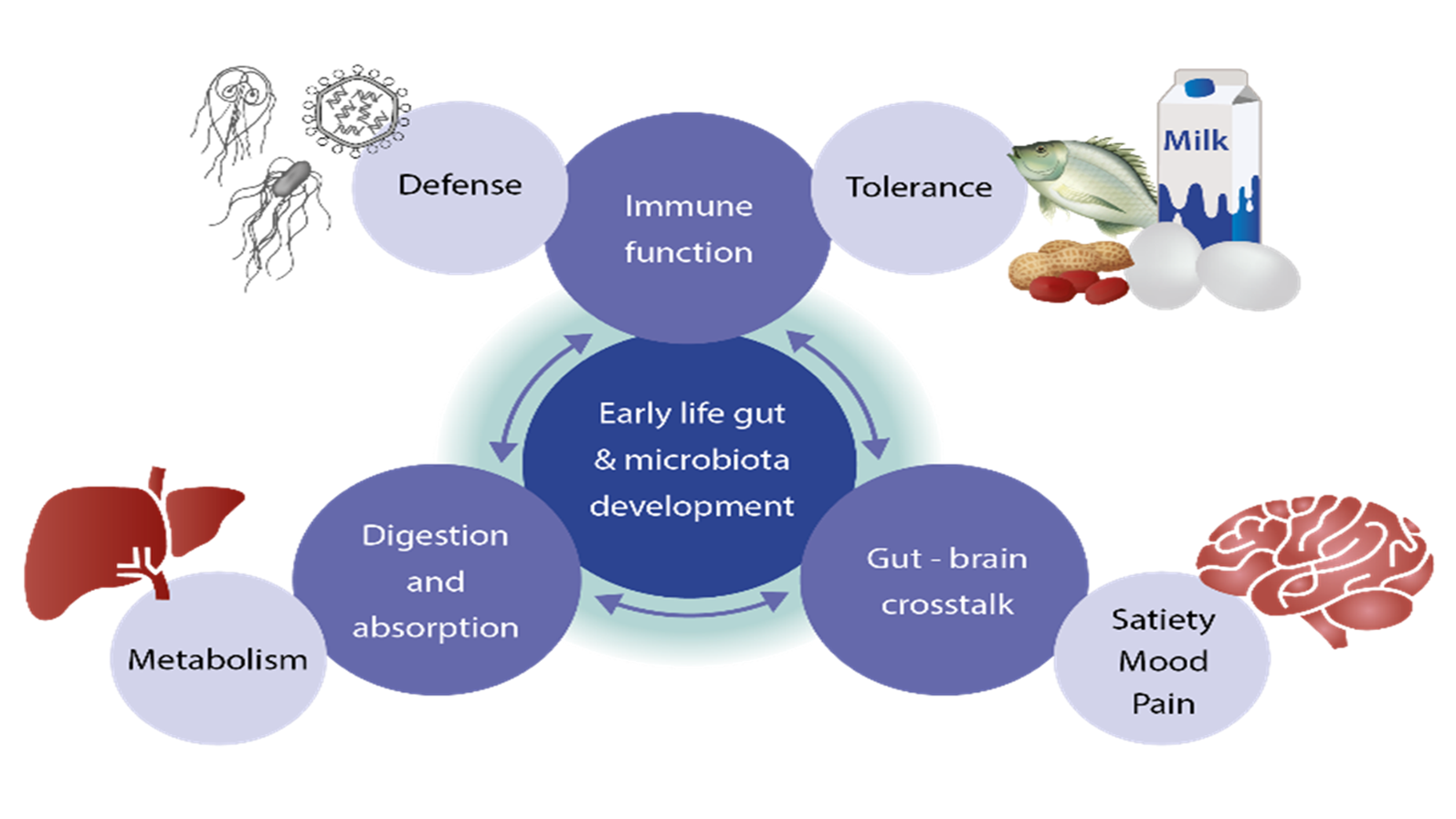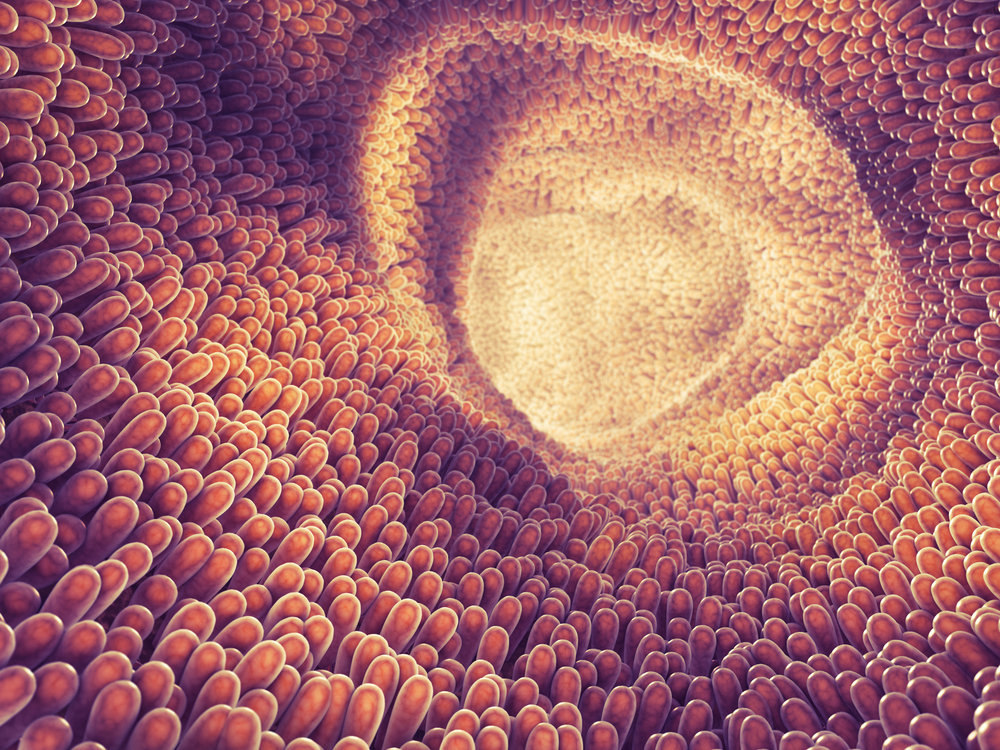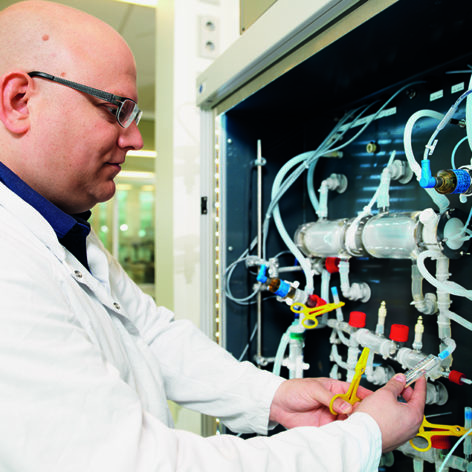Our gastrointestinal (GI) tract undergoes rapid growth and differentiation during the first 1000 days of life. Ensuring the healthy development of the gut is of major importance as gut function is inextricably linked to our overall health and wellbeing. Home to 100 trillion microorganisms, collectively known as the ‘microbiota’, the gut’s primary function is the digestion, absorption of nutrients and the excretion of waste. However, it also has a major influence on both the development and function of the immune system, as well as on gut-brain communications.1Shamir R, et al. Essential Knowledge Briefing, Wiley, Chichester. Published on (2015) ,2Van de Wiele T. et al. Nature Reviews Rheumatology. Published on 2016;12:398–411

Some facts about gut:
- About 100 trillion bacteria reside in the gut and they produce metabolites that have health effects
- 70-80% of the body’s immune cells are concentrated in the gut
- There are 100 million neurons located along the gut which produce various neurotransmitters that regulate mood and satiety
- 95% of the body’s total serotonin is located in the gut
The development of gastrointestinal tract in early life
From birth into the early years of life, our GI system is subject to significant structural changes.3Weaver LT, et al. Gut. Published on 1991;32:1321-1323 ,4Health & Parenting, Published on Accessed on: July 2016. http://health-and-parenting.com/preparing-for-breastfeeding-how-much-milk-will-my-newborn-need For example, at birth, an infant’s stomach can hold just 5-7ml of milk and is the size of a cherry. By day three, the stomach has more than tripled in size and can hold around 22-27ml of fluid. By the end of the first month, the stomach is around the size of an egg and can hold between 80 and 150ml.
The infant stomach undergoes a tenfold increase in volume capacity in over just 30 days
The small intestine undergoes a similarly dramatic period of growth, almost doubling in length from 275cm at birth to over 450cm by the age of five years.
There is a direct link between the healthy development of our GI tract and our overall health and well-being
For the gut, the first weeks and months of life are also a period of remarkable physiological growth.5Vandenplas Y, et al. Essential Knowledge Briefing. Wiley, Chichester. Published on (2015) This development is a complex, interdependent process and includes the on-going formation of the digestive system and its enzymatic functions, for example gastric acid secretion, necessary for the maturation of gastric pepsin activity. In addition, the GI system is also developing vital neurological and biochemical processes over the first year after birth.
External stimuli, such as nutrition and environment, can have a strong influence on the development of the GI system
The composition of the gut microbiome
A healthy gut microbiota contains a balanced composition of many classes of bacteria that have a number of health promoting functions. Throughout life and most particularly in infancy, the composition of the gut microbiome is very dynamic. Factors that can affect its composition include:
• Diet of mother during pregnancy
• Mode of delivery (vaginal birth vs C-section)
• Gestational age e.g. premature birth
• Nutrition e.g. with prebiotics, probiotics or postbiotics
• Use of antibiotics An imbalance in gut microbiota (‘dysbiosis’) during infancy can have a negative impact on health and wellbeing, and has been linked to an increase in asthma and allergy, as well as infantile colic and GI disorders.6Collado MC, et al. Gut Microbes, 3(4): 352-65. Published on 2013. ,7Wopereis H, et al. Pediatr Allergy Immuno. Published on 2014;25:428-38 It has also thought to increase the risk of obesity and metabolic disorders later in life.8Collado MC, et al. Gut Microbes, 3(4): 352-65. Published on 2013. ,9Wopereis H, et al. Pediatr Allergy Immuno. Published on 2014;25:428-38
An imbalance in gut microbiota (‘dysbiosis’) during infancy can have a negative impact on health and wellbeing, and has been linked to an increase in asthma and allergy, as well as infantile colic and GI disorders.6Collado MC, et al. Gut Microbes, 3(4): 352-65. Published on 2013. ,7Wopereis H, et al. Pediatr Allergy Immuno. Published on 2014;25:428-38 It has also thought to increase the risk of obesity and metabolic disorders later in life.8Collado MC, et al. Gut Microbes, 3(4): 352-65. Published on 2013. ,9Wopereis H, et al. Pediatr Allergy Immuno. Published on 2014;25:428-38
The human host-microbe symbiosis is initiated in early life, and its establishment is an intriguing dynamic process. It may profoundly influence health and well being throughout life.
View References
| 1 | Shamir R, et al. Essential Knowledge Briefing, Wiley, Chichester. Published on (2015) |
|---|---|
| 2 | Van de Wiele T. et al. Nature Reviews Rheumatology. Published on 2016;12:398–411 |
| 3 | Weaver LT, et al. Gut. Published on 1991;32:1321-1323 |
| 4 | Health & Parenting, Published on Accessed on: July 2016. http://health-and-parenting.com/preparing-for-breastfeeding-how-much-milk-will-my-newborn-need |
| 5 | Vandenplas Y, et al. Essential Knowledge Briefing. Wiley, Chichester. Published on (2015) |
| 6, 8 | Collado MC, et al. Gut Microbes, 3(4): 352-65. Published on 2013. |
| 7, 9 | Wopereis H, et al. Pediatr Allergy Immuno. Published on 2014;25:428-38 |



